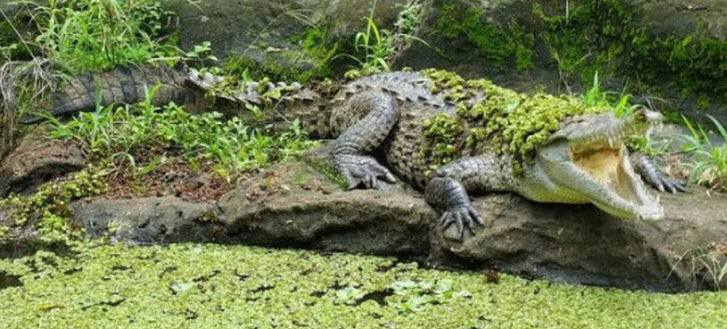In a groundbreaking discovery, scientists documented the first known case of asexual reproduction, known as parthenogenesis, in a crocodile in Costa Rica.
This rare biological event was found in a female crocodile who laid eggs despite having no interaction with a male for the majority of her life.
Previously witnessed in other animals, this is a first for the order Crocodilia, which encompasses crocodiles, gavials, and caimans.
The details of this remarkable finding are documented in the study titled “Discovery of Facultative Parthenogenesis in a New World Crocodile.”
This serves as the inaugural record of such unconventional asexual reproduction in Crocodylus acutus, otherwise known as the American crocodile.

Residing in Reptilandia Park, Puntarenas, Costa Rica, the crocodile in question has been in isolation since it was two years old.
The discovery was made when, at the age of 18, she was found with a nest of eggs.
Following the artificial incubation and examination of seven eggs, one was found to contain a fully formed, albeit lifeless, female fetus that shared 99% of the mother’s genetic material.
The other six eggs were empty.
This unprecedented discovery broadens the understanding of parthenogenesis in the reptile family Crocodylia, suggesting it could be more prevalent in species with low population densities, such as the American crocodile, which is currently classified as vulnerable by the IUCN.
Furthermore, it offers intriguing possibilities about the reproductive capabilities of extinct relatives of crocodilians, including dinosaurs.
Parthenogenesis, a type of asexual reproduction, allows females to produce offspring from their own genetic material without fertilization.
The frequency of parthenogenesis can vary among species. In some, it is the only form of reproduction (obligate parthenogenesis), while in others, females can switch between sexual and asexual reproduction (facultative parthenogenesis).
This phenomenon is more common in invertebrates but has been observed in a variety of species, including birds, fish, reptiles, Asian vipers, some lizards, and the European honeybee.
Additionally, parthenogenesis has been experimentally observed in captive animals, such as rhesus macaques and sharks.
Unprecedented asexual reproduction observed in a Costa Rican crocodile, parthenogenesis, parthenogenesis crocodiles

